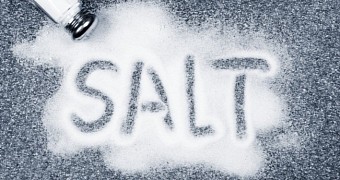Eat too much salt and chances are that you'll struggle with high blood pressure for the better part of your life, medical experts have been telling us for years and years. Still, it’s been only recently that scientists have figured out why this is the case.
Fair warning, this piece of news might seriously spook you and make you want to give up salt forever. In a nutshell, evidence at hand indicates that too much of this food ingredient reprograms the brain and keeps it from properly regulating blood pressure.
Documenting the effect salt has on the brain
In the report detailing their work, published in yesterday's issue of the journal Neuron, researchers with the McGill University explain that, to study how too much salt affects the brain and the body, they carried out a series of experiments on laboratory mice.
Specifically, they made the rodents eat a whole lot of it and then patiently waited to see how they responded to this change in their diet. Apart from getting seriously thirsty, the mice involved in these experiments experienced shifts in the chemistry of their brain.
As explained by the McGill University scientists behind this study, the mice's increased salt intake correlated with the disabling of a natural mechanism that serves to control blood pressure by regulating the activity of specific neurons in the brain.
More precisely, the researchers say that the rodents that consumed too much salt for their own good had their brain flooded with a chemical compound dubbed vasopressin. This hormone is produced by neurons and helps retain water in the body and constrict blood vessels.
“We found that a period of high dietary salt intake in rats causes a biochemical change in the neurons that release vasopressin (VP) into the systemic circulation. This change prevents the inhibition of these particular neurons by other cells,” said study leader Charles Bourque.
The find could help treat high blood pressure
Provided that the same mechanisms are at play in the case of humans, this study could help pave the way for the development of better treatments of high blood pressure. More precisely, new drugs could tackle this condition by putting a leash on the production of vasopressin.
Still, until such drugs are developed and become widely available, the safest way to go when it comes to preventing high blood pressure is to simply limit one's daily salt intake.

 14 DAY TRIAL //
14 DAY TRIAL //